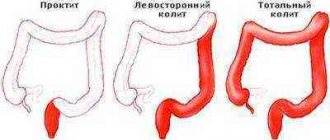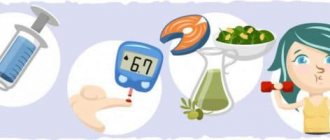Why did you develop an aversion to meat?
If you notice that you have nausea or vomiting at the sight or smell of meat, you should pay attention to this. This can be a symptom of both serious diseases (cancer) and not very dangerous diseases (stress, just lack of appetite). This may also be a sign of the birth of a new life (pregnancy).
So, why does aversion to meat occur? The reasons may be the following:
- At home, only one probable cause can be excluded, and it only applies to females: pregnancy. If the test shows two lines, then there is no need to panic too much. But you will still need to consult a therapist, since a complete refusal of meat products in this state can harm the unborn child. Here even the swing of a meatball can be annoying, not just its appearance.
- If you have an aversion to meat, then know that this may also be due to other hormonal changes, such as: adolescence, menopause; postpartum period. The state of aversion to meat goes away as soon as the hormones return to normal.
- The presence of parasites in the body. For example, worms.
- The worst thing is the beginning of development or already progressing cancer. With this disease, the functioning of many organs is disrupted, and appetite also disappears. But a particularly pronounced symptom is an aversion to meat.
- Disease of the liver and other organs of the digestive tract. Meat products are difficult to digest, and their consumption causes heartburn, abdominal pain, heaviness in the stomach and even nausea with vomiting in such people. Therefore, people often simply refuse heavy foods themselves (meat falls into this category).
- Poisoning or accumulation of excess toxins in the body. At this time there is a heavy load on the liver. This entails the body’s rejection of meat.
- Medicines. Some affect taste changes and cause disruption in the functioning of the gastrointestinal tract.
- Wrong diet or vegetarianism. If the menu is compiled incorrectly, then over time the body may weaken or digestion problems will begin. This in turn will entail a refusal of meat products.
- Oversaturation of the body with meat. This happens to people who don’t spend a day without it and are ready to consume it in large quantities. As a result, the body itself will refuse heavy food, causing nausea at the sight of meat.
- A side effect from an illness. For example, hepatitis greatly damages the liver. As a result, the stomach will no longer be able to properly digest heavy food, and the body itself begins to reject meat products.
- Alcohol and smoking can also cause nausea on meat products. Because they clog the body with toxins and overload the liver. It subsequently provokes a refusal of meat.
- A person on a subconscious level considers meat an unnecessary and harmful product. These are people who believe that meat makes you old, or you can’t eat meat because to do this, a person needs to kill a cow, chicken or ram. Mostly they are vegetarians.
- Stressful condition. It could just be depression; there is refusal and aversion not only to meat food. Or perhaps the person watched a film where there was a lot of blood or the carcass of a killed animal was cut up. Or visited a similar factory. If a person is very impressionable, then his aversion to meat may not go away soon.
- Weakness of the body. In this case, the digestive system itself refuses to take meat products. This happens because meat is a rather heavy food, and the body simply does not have enough energy to digest it. Therefore, at this time a person greedily begins to eat buns and chocolate. Carbohydrates are absorbed faster and replenish energy losses. The main thing here is to stop the abuse of carbohydrate foods in time. Otherwise, excess weight will be ensured.
Posts 1 page 11 of 11
Share12010-07-14 14:37:12
- Author: Kosmonavt
- Executor
- From: UK
- Registered: 2009-01-15
- Posts: 12781
- Respect: +2905
- Positive: +3720
- Gender: Male
- Age: 42 [1978-01-25]
- Blood type: 1
- Diet style: I was a vegan, but now I eat raw fish, yolks, liver, lard and raw meat.
- Zodiac sign: Aquarius
- Time spent on the forum: 4 months 0 days
- Last visit: 2019-07-16 18:40:22
Patients with malignant neoplasms often present seemingly incomprehensible complaints:
weakness, fatigue, unexplained increase in body temperature, weight loss, poor appetite (typically an aversion to meat foods, especially with stomach cancer), anemia, increased ESR (erythrocyte sedimentation rate in a general blood test). Sometimes this syndrome appears early, being the only manifestation of a malignant tumor. Sometimes it is discovered later in the form of cancer intoxication. Such patients have a characteristic “oncological” appearance: low nutrition (that is, thin), tissue turgor is reduced, pale skin with an icteric (icteric) tint, sunken eyes. Such a patient’s appearance indicates the presence of an advanced oncological process.
(a person of normal build turns into an immortal koshchei)
Science has already proven that cancer does not appear suddenly, but gradually.
This disease is very often preceded by so-called precancerous diseases (chronic ulcers, papillomas, fibromas, polyps, hyperplasia, pigmented neoplasms, etc.). If such diseases are treated early, cancer can be prevented.
The success of treating cancer patients depends one hundred percent on early diagnosis and timely treatment. In other words, the sooner the patient sees a doctor, the better. In the initial stages of the disease, almost all cancer patients are cured.
What are the early signs of the onset of this insidious disease? Common signs are a progressive increase in pigmented neoplasms, the appearance of hard, painless, slow-moving lymph nodes, the appearance of atypical discharge from various organs, especially with admixtures of blood of different shades, and long-term ulcers that cannot be treated.
Frequent urination in men can be a sign of damage to the prostate, and abnormal bowel movements, in particular frequent “ineffective” urges, can be a sign of damage to the colon.
An increase in any benign tumors (warts, papillomas, fibromas) or the appearance of neoplasms or hardenings should also alert the patient.
The most typical signs of damage to the ENT organs by malignant growth can be: a sharp increase and hardening of the palatine tonsils or their ulcers, the appearance of polyps, granulations, and the appearance of bloody discharge (especially in chronic diseases of the ENT organs). However, the presence of these signs does not necessarily indicate the occurrence of cancer.
Alarming symptoms are prolonged sore throat, enlarged and hardened cervical lymph nodes, wheezing, prolonged course of chronic laryngitis, and the like.
Therefore, you should not save an hour or even a day for a timely visit to the doctor, because you will subsequently have to lose weeks, months on treatment, and pay for negligence with your health or life.
You should also not shy away from medical examinations and special examination methods.
Share22010-09-07 20:06:48
- Author: Kosmonavt
- Executor
- From: UK
- Registered: 2009-01-15
- Posts: 12781
- Respect: +2905
- Positive: +3720
- Gender: Male
- Age: 42 [1978-01-25]
- Blood type: 1
- Diet style: I was a vegan, but now I eat raw fish, yolks, liver, lard and raw meat.
- Zodiac sign: Aquarius
- Time spent on the forum: 4 months 0 days
- Last visit: 2019-07-16 18:40:22
Doctors have named eight symptoms that indicate the development of cancer, including blood in the urine and anemia. A group of scientists from Kiel University also identified the most dangerous age from this point of view.
In addition to these two symptoms, other warning signs include rectal bleeding, coughing up blood, breast tightness, trouble swallowing, post-menopausal bleeding, and abnormal prostate tests.
There are more than 200 types of cancer, which can cause a variety of symptoms. However, the scientists specifically looked for symptoms that gave the odds of developing cancer a 1 in 20 chance or higher. To do this, 25 previous studies on cancer were examined.
It turned out that if a person was under 55 years old, only two symptoms fell under the rate of 1 in 20. These included a prostate exam giving abnormal results and a lump in the breast.
Why is it a problem during pregnancy?
Aversion to meat is a symptom of what disease? With different diseases, the feeling of disgust can be expressed in different ways. And sometimes these small differences can be used to more accurately determine what disease is lurking in the body. And using these signs, you can quickly find the causes of the disease.
It is possible to develop an aversion to meat during pregnancy. During this period, there is an aversion to many dishes and even to the most favorite ones. A pregnant woman can vomit not only from the sight of raw meat, but also from the smell of fried chicken. This usually manifests itself as vomiting. But this period does not last long. And it is caused by the fact that the body itself chooses which nutrients it needs most now. There are no additional symptoms (for example, abdominal pain). If there are other signs and the dislike for meat lasts more than a week, then it is better to consult a therapist.
Aversion to fishy smell, reasons
Fish products have a very specific smell, which, like meat, may not be liked by everyone. Each person is completely individual and some of us simply cannot stand the taste or smell of fish. The smell of fish is so strong that it does not disappear from the kitchen for a long time, even after the fish has been cooked. In order to wash the dishes in which the fish was lying, you need to try hard and you can’t do it without detergents. Due to the fact that this smell is strong and pungent, many people begin to feel sick from it.
If you feel sick from the smell of fish, then you should not eat this product, because... fish spoils much faster than meat and poultry. The causes of nausea from raw fish and fish dishes can be either an individual intolerance of a person, or it is a symptom indicating the presence of certain problems in the body. Therefore, it is better to immediately find out the causes of constant nausea from the fishy smell, from the smell of fish, in order to get rid of the annoying and painful symptom as soon as possible.
Stress and meat refusal
In stressful situations or normal refusal of meat, other than nausea, no symptoms appear. And it can go away on its own as soon as a person appreciates the benefits of meat products or the stress passes.
If the disgust lasts more than three days, then it is better to consult a therapist. It is worth going to the pediatrician if your child has an aversion to meat, and it appeared suddenly, and occurs with additional symptoms.
Aversion to meat smell
Many people cannot stand the smell of raw meat. If there is a strong smell, they immediately begin to feel sick. In order for this feeling of nausea from the smell of raw meat to go away, you need to reduce the smell as much as possible. Ventilate the room, or move to a window, or go out into fresh air. Also, the smell of meat products can be muffled by mustard, wine, pomegranate juice, and seasonings.
If a person constantly feels sick from the smell of raw meat, then he should seek help from a doctor to determine the possible causes of the feeling of nausea. Because Nausea is only a symptom that may indicate the presence of certain health problems.
What are the dangers of not eating meat?
People who refuse to eat meat products at first note lightness and even an increase in energy (this happens due to the fact that energy is not wasted on digesting meat, and a lot of it is required, but the resulting energy lasts for a long time). But over time, a loss of strength and exhaustion of the body occurs.
A lack of proteins begins; they are especially important during pregnancy, as well as the growth of the child. The amount of iron in the blood also decreases. This can cause severe illness, fatigue and decreased immunity. Brain performance will also decrease.
The lack of meat will also affect the condition of the bones. They will become brittle and brittle. A fracture can occur even with light blows. The spine will not form correctly, it may become curvature, and clubfoot may also develop.
It will also affect the condition of the skin, acne and increased oiliness will appear. Cholesterol levels will decrease. While this is beneficial for an adult (although not for everyone), it is harmful to a child’s body. And in the absence of cholesterol, the child will not develop properly.
Lack of meat can cause difficulty in conceiving and can lead to infertility. All the vitamins and minerals found in meat are also found in other foods. They can temporarily replace it, but not completely.
Why does meat make you sick?
Meat is predominantly a protein product containing essential amino acids. Muscle fibers include vitamins, minerals, and extractives. The latter enhance the secretion of digestive enzymes, stimulate appetite and improve the smell and taste of the product.
Features of meat
Factors influencing the taste of meat products:
- Type of slaughter animal. A person experiences antipathy towards one or another type of meat. Lamb, pork, and beef have different chemical compositions from each other. Pork is juicy and fatty. The flesh of beef cattle breeds has an increased amount of muscle tissue. Due to the refractoriness of adipose tissue, beef has a reduced content of extractive substances.
- Gender and age of the animal. Childhood brings few differences in the meat of different sex breeds. As cattle grow older, there is an increase in moisture and a decrease in protein in the muscles of males. Bulls build up connective tissue. Boars are disgusting with a specific smell.
- Feed. Depending on what the meat breed was fed, there will be an aftertaste that can cause nausea in sensitive people.
The benefits of not eating meat
Although there are advantages to the absence of meat products in the diet:
- Excessive amounts of meat products can lead to heart and vascular diseases.
- Meat can cause pathologies in the kidneys and liver.
- Cause diseases of the gastrointestinal tract, including cancer.
- Meat is not always properly processed and stored. And often, to give it a marketable appearance, it is exposed to various chemicals.
- Animals are constantly vaccinated against diseases; the medicine can settle on all its organs and tissues. Which can trigger the onset of serious illnesses.
- Animals are fed special supplements to increase weight gain. Which is also harmful to humans.
But if the livestock is raised on a proven farm or independently, then such meat is recommended for consumption. You just need to observe the measure, proper storage and preparation.
Why does meat make you sick?
People feel sick for a variety of reasons. Often there is no visible reason for the manifestation of an unpleasant feeling. Healthy people are not disgusted by the taste and smell of food (meat, fish, dairy products, chicken, fried or stewed dishes). A painful sensation in the stomach provokes vomiting, and your health worsens.
Nausea, like vomiting, is not a separate disease. The body signals that something is wrong, health is in danger. The reason lies in the pathological processes of the organs and tissues of the body: gastrointestinal disease, food or alcohol poisoning, viruses. One of the likely factors in the occurrence of a nauseating feeling is sharp, unpleasant odors. Regardless of age and gender, aversion to any aroma may occur.
What do doctors advise?
If you have an aversion to meat, you can temporarily exclude it from your diet and replace it with analogues containing protein and other vitamins. This is especially true for pregnant women. But we must remember that plant protein is significantly different from animal protein.
If a person independently refuses to eat meat due to some beliefs, then initially you need to pay attention to age. For children and adolescents, such refusal is dangerous. It is advisable to become involved in vegetarianism after 25-30 years, but not during pregnancy or illness.
Doctors' advice
How to eat if you have an aversion to meat? After all, complete refusal of this product can lead to protein deficiency in the body.
If the aversion to eating meat is associated with a disease, then it is necessary to cure the underlying pathology. For malignant tumors and inflammation in the gastrointestinal tract, doctors prescribe special diets that limit heavy foods.
Meat is not the only source of protein. This product can be replaced with the following types of food:
- legumes;
- chicken or quail eggs;
- dishes made from rice and buckwheat;
- mushrooms;
- nuts;
- sesame seeds.
These products contain plant proteins that are no less beneficial than animal protein. Such food is easier to digest and absorb by the body than meat.
Dairy products also contain protein - casein. If you have an aversion to meat, it is recommended to eat low-fat cottage cheese, yogurt, cheeses, fermented baked milk, and kefir. It is also useful to include fish and eggs in your diet. This will help enrich the body with proteins.
An aversion to meat is often accompanied by a complete loss of appetite. This is observed in pregnant women with toxicosis, as well as in patients with infectious and gastric diseases. However, fasting is strictly contraindicated. Refusal to eat will only lead to further weakening of the body. If you have poor appetite and nausea, it is recommended to eat light food, and then gradually introduce dietary meats in small quantities into your diet.
Products
Products that partially replace meat:
- peas and legumes;
- mushrooms rich in protein (for example, russula does not contain many useful substances);
- various seeds (sunflower, sesame);
- various cereals;
- nuts of different types;
- fermented milk products;
- If a person is not a vegetarian, then you need to eat eggs and fish.
The main thing here is to follow the rules of use. Otherwise, there may be an overabundance of some important elements and a lack of others. If you have an intolerance to certain foods or a person has severe allergies, then you need to consult with the right specialist.
Aversion to cigarette smoke
Smoking is harmful, and every modern person knows about it. Nevertheless, many people smoke and cherish the hope that it will not lead to anything bad. Many people feel nauseous from the smell of cigarettes, but they still continue to do it and suppress these sensations. Some people feel nauseous even when exposed to second-hand smoke. And this is not surprising; smoke contains many toxic substances that poison the body. The cause of nausea from the smell of cigarette smoke can often be natural, because... Cigarette smoke is a toxic substance that causes serious harm to the human body.
Adviсe
If a person is irritated by the smell of meat, then a decoction of ginger or chamomile can be used to treat it. And also entrust the preparation of such dishes to another person (mother, husband, sister, etc.) and ventilate the apartment more often, especially the kitchen.
To avoid disgust, you need to carefully approach the purchase of meat and check its freshness. Prepare dishes where the flavor of the meat will not be very pronounced. If refusal is not a personal decision, then you need to look for the reason, and preferably not on your own. And start treatment.
If the lack of appetite for meat is accompanied by abdominal pain, fever, vomiting, sudden weight loss and increased sweating, then this is a reason to sound the alarm and go to the hospital.
Aversion to the smell of perfume
In fact, there are a lot of different smells that can cause a feeling of nausea. There are also many other reasons. If you feel sick from the smell of perfume, it could be the flu, motion sickness, pregnancy, poisoning, and the like. The causes of nausea from the smell of perfume can be very diverse and it is not always perfume that is the main allergen to which the human body reacts. In order to get rid of the unpleasant feeling of nausea from the smell of perfume, you need to find out the reason for the appearance of such an unpleasant symptom.
If you feel sick from the smell of perfume, then you can use simple remedies that will help get rid of this feeling of nausea. You can use products such as Validol, Aeron or Anestezin, but only on the recommendation of your doctor, because self-medication can be dangerous to your health. Or use a simple folk remedy, chamomile tea or ginger.
Pathologies of the gastrointestinal tract and liver
The cause of aversion to meat is very often diseases of the digestive system. These pathologies always negatively affect a person’s appetite. Aversion to meat food is accompanied by the following symptoms:
- nausea;
- vomiting;
- feeling of heaviness and pain in the abdomen;
- heartburn.
Manifestations of gastrointestinal pathologies usually intensify after eating heavy food, including meat. Inflamed digestive organs cannot process such food. The result is abdominal pain and nausea.
The following diseases can cause an aversion to meat:
- gastritis;
- ulcerative lesions of the gastrointestinal tract;
- cholecystitis;
- pancreatitis;
- cholelithiasis.
Due to pain and other unpleasant sensations, a person begins to avoid eating meat. However, a vegetarian diet does not cure the underlying disease. For gastrointestinal and liver pathologies, it is necessary to undergo diagnostics and a course of therapy. After the condition improves, the patient can eat dietary meats: chicken, turkey, rabbit. Eating fatty beef and pork should be completely avoided.
Causes
The following reasons for aversion to meat can be identified:
- depression;
- stress;
- infectious diseases;
- gastrointestinal and liver pathologies;
- pregnancy;
- cancerous tumors;
- allergy to animal protein.
With these diseases and conditions, the body is significantly weakened. It becomes difficult for him to digest and absorb heavy proteins. As a result, a person develops an aversion to meat, even to the point of nausea from one type of animal food.
Next, we will consider in more detail possible diseases and conditions that are accompanied by such a change in taste preferences.
Oncological diseases
Patients with cancer often develop an aversion to meat. Why is this happening? Oncological diseases dramatically weaken the body, and it becomes difficult for the digestive system to process heavy meat foods. In addition, the patient's appetite sharply decreases. This condition is most often observed with malignant tumors in the gastrointestinal tract.
An aversion to meat in cancer is one of the early signs of pathology. In this case, other symptoms of the initial stage of the disease are observed:
- sudden weight loss;
- weakness and high fatigue;
- sweating;
- frequent ailments.











